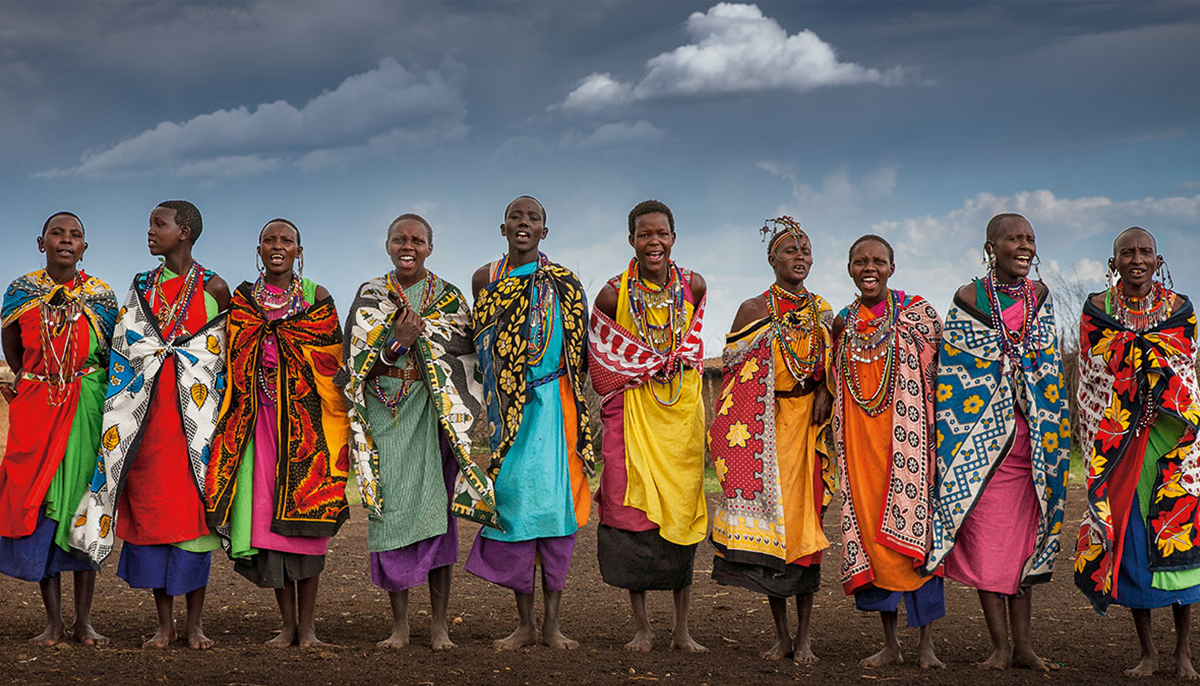I am an African American person who was born and raised in Indianapolis. My mother was born in Arkansas and my father was born in Kentucky. Their parents were also born in the U.S. I never knew my ancestors from Africa, and in my family, we never spoke of them. My sense of self was completely westernized through an intergenerational imposition of American cultural identity. I was also sheltered and provincial growing up, so much so that I don’t remember ever meeting anyone from Africa.
During my last year of college, I was consistently and soundly sleeping through my Black history class (of all classes!) until the professor (a white man) startled me by slamming his hand on the desk I had made my pillow. He told me I could no longer sleep in his class and I should see him in his office. I was embarrassed and ashamed. When I was in his office, he told me I needed to see the world, and recommended I go to Africa with Operation Crossroads Africa, a cross-cultural exchange program. I followed his advice and went to Zimbabwe.
While in Zimbabwe, walking with Zimbabweans, I encountered people who greeted me with the traditional salutation in the Shona language: “Mhoro, wakaadii” (“Hello, how are you?”) and “Ndapora kana wapora” (“I am well if you are well”). It was a salutation, which meant, in essence, that their state of being was conditioned by my state of being.
It was like a koan. My discursiveness was stopped; I was confused. Then I felt the joy that comes from feeling connected. I learned later that the expression comes from ubuntu, a philosophy that means “I am because you are” or “We are because of each other.” Ubuntu is found throughout many African countries especially, but not exclusively, Southern African countries. According to my former professor, Carolyn Akua McCrary, who teaches at Interdenominational Theological Center in Atlanta, a historically Black institution, ubuntu is also a part of the African American mindset, even if we don’t always recognize it.
What is the interconnection between African ubuntu and Buddhist interdependence? And in what other ways are the philosophies of ubuntu and Buddhism similar? In what follows, a Xhosa in South Africa, an Asian African in Europe, and two African American writers reflect on these questions.
—Pamela Ayo Yetunde, Associate Editor
I See You
Rehena Harilall shares a traditional Zulu greeting that helps her see others through the lens of compassion.
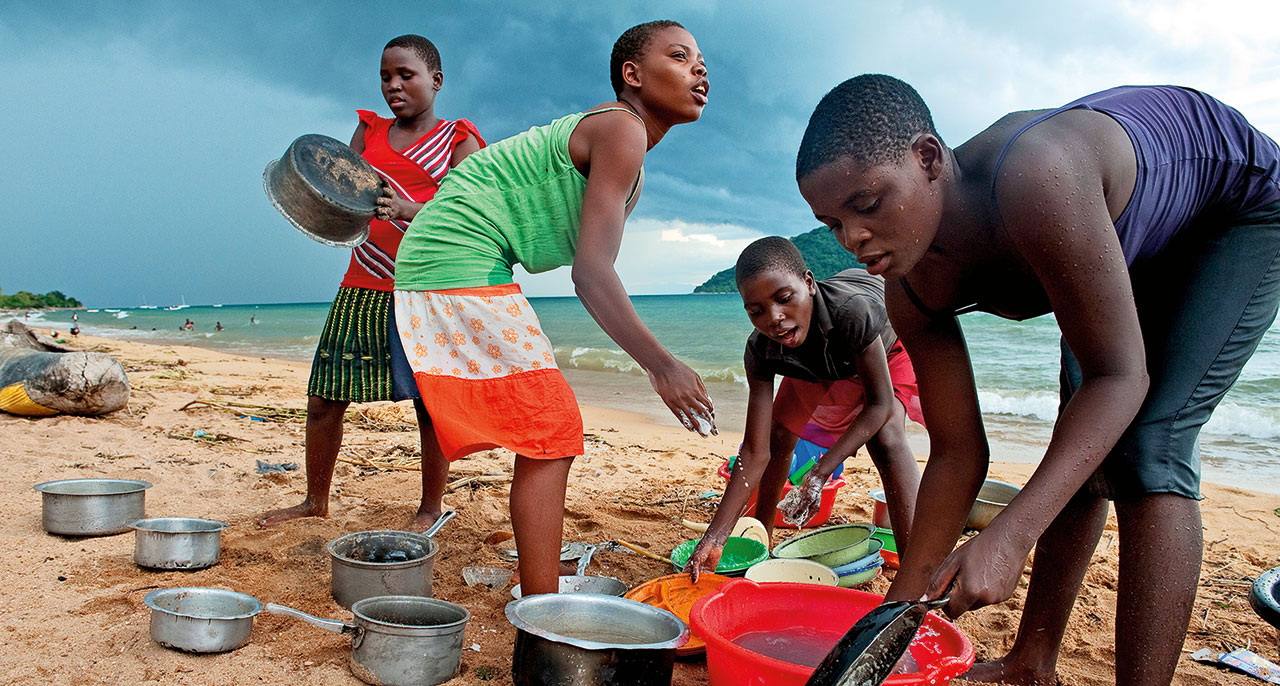
When I was a child growing up in South Africa, I’d press my hands together at my heart—in the Hindu gesture of namaste—and bow as I offered the isiZulu language greeting sawubona (we/I see you), which is usually accompanied by the response sikhona (we/I am seen).
I celebrate my Indian, South Asian, and African heritages, and my childhood was steeped in the ancient wisdom of Buddhism, Hinduism, and indigenous Zulu practices. Taught to be humble, to respect all sentient and nonsentient life, I easily bowed to the wisdom manifesting in all of creation. Sadly, I lost this connection when I absorbed the disparaging views held by the white dominant South African regime that the rituals of my ancestors were “backward,” “uncivilized,” and hindrances to material and professional “success.” It was not until returning to Buddhist practice as an adult, that I remembered and reconnected to this sacredness.
May I always remain bowed in service, my every thought and action embodying ubuntu on my long walk home to liberation.
Ubuntu is the ancient African wisdom that is akin to what Buddhists call codependent arising or interbeing. Much of our suffering is caused by denying interdependence. Adopting ubuntu philosophy is a way to cut through the illusion of separate selves and dualities.
The exchange of greetings sawubona–sikhona expresses the philosophy of ubuntu. In responding “sikhona”—“we/I am seen”—we move beyond seeing ourselves just visually, as a separate self. We look through the lens of embodied compassion and see ourselves as we are—impermanent, made up of thoughts, feelings, and ancestrally transmitted traumas, all shaped by the collective context we are part of. In the sawubona–sikhona exchange, we see the rippling impact of our desires, volitions, and actions—the energy we create in the world—and acknowledge that we cannot be human alone. We are part of a shared humanity.
As dharma teacher Ralph Steele puts it, I can “look deeply into the other until I see myself.” My humanness is even reflected in those I most vehemently disagree with—they too are painfully molded by ancestrally transmitted conditions. To react to this pain with the unskillful energies of anger and fear diminishes the positive collective energy we create together as a human species. We are bound up with each other.
“I can never be what I ought to be until you are what you ought to be,” said Rev. Dr. Martin Luther King Jr.
My understanding of Buddhist interdependence underpins my view of sawubona as an opportunity to bring into my awareness the relative or phenomenal you—acknowledging your story, your lineage, and your humanity—while also bringing into awareness the absolute you—your true nature, your embodiment of the endless stream of life, which is indestructible, formless, omnipresent, and eternal.
I bow. Responding “sikhona,” I stand in the naked humility of a multifaceted earthling who is also a fractal drop of creation, a universal sign of love.
I bow. May I always remain bowed in service, my every thought and action embodying ubuntu on my long walk home to liberation. May I walk in the majestic grace and loving wisdom of all my ancestors.
It’s How We Survived
Ubuntu helped the African diaspora survive centuries of slavery and oppression, suggests David W. Robinson-Morris.
The lifeblood of Africans—those on the continent and those whose ancestors were dispersed around the globe, not as people but as property—is anchored in a deep understanding of interdependence. For Africans, community is paramount for collective survival, but not at the expense of the individual. In my experience, ubuntu is a deep and embodied understanding that human beings are not born but formed in community and relationship with one another.
Ubuntu is a Southern African philosophy that has been commonly translated as “I am; therefore, we are.” However, ubuntu can best be understood as an embodied practice that South African philosopher Michael Eze defines as, “A person is a person through other people.” Our humanity is a collective endeavor; we create each other and sustain one another.
Both ubuntu and Buddhist interdependence are generous ontologies that provoke an awareness of the interwovenness of this web called life.
Perhaps, it was ubuntu that allowed the dispersed and enslaved Africans—my ancestors—to survive the brutality of slavery and the loss of their homelands, mother tongues, and customs, while never questioning their humanity. All human life began on the continent of Mother Africa, so we—the people of the African diaspora—are the people of humanity’s birth. Understanding this confers upon us an embodied dignity in the face of the white supremacist ideology, which has run rampant over the globe. Our humanity can never be questioned. This embodied knowing and practice sustains many of us Black Americans to this day and guides our community living.
Similar to ubuntu is the Buddhist concept of interbeing or interdependent co-arising—the understanding that nothing is separate, self-reliant, or self-contained. All phenomena arise within and from a network of mutuality, an ecosystem of being.
There is no division between human and human, or human and nature, or human and spirit; all things are moving away from fragmentation to wholeness (or complete emptiness). Both ubuntu and Buddhist interdependence are generous ontologies that provoke an awareness of the interwovenness of this web called life and what it means to be a human being in relationship with all sentient beings.
Thich Nhat Hanh explains that nothing can be free alone; all things inter-are. He writes: “We go beyond outward appearances or signs and come to ‘signlessness.’ At first, we think that members of our family are separate from one another, but afterwards we see that they contain each other. You are the way you are because I am the way I am.”
In other words, I am because we are—ubuntu.
According to African cosmology, humans are not only in relationship with each other; they are also in relationship with nature, the ancestors, and spirit. I believe that intertwining the philosophies of ubuntu and Buddhist interbeing intensifies one’s understanding of the interdependence of all things and beings, seen and unseen. The resonances between ubuntu and Buddhist interdependence are uncanny; however, a simple search of comparative religions or philosophical understandings yields a knowing that reverberates across cultures, continents, and chronological time. This knowing is always reaching and stretching toward wholeness—together.
Ubuntu and interdependence bring to consciousness the knowing that we are multiplicities of one, a bundle of life, folding and unfolding on this plane while interwoven with the energy of an absent-present past, an absent-present future, and a very present-present. Together, these philoso-praxes teach us that my humanity and your humanity are tied up with one another, so tightly coupled that everything one does to others or the environment affects all of us. In this way, the idea of a separate self or individual action is a mere illusion—all things are interdependent and interconnected. Community is life, and humanity is a quality we owe each another.
This Is How We Should Be
Yao Obiora Dibia on how children say the truest things.
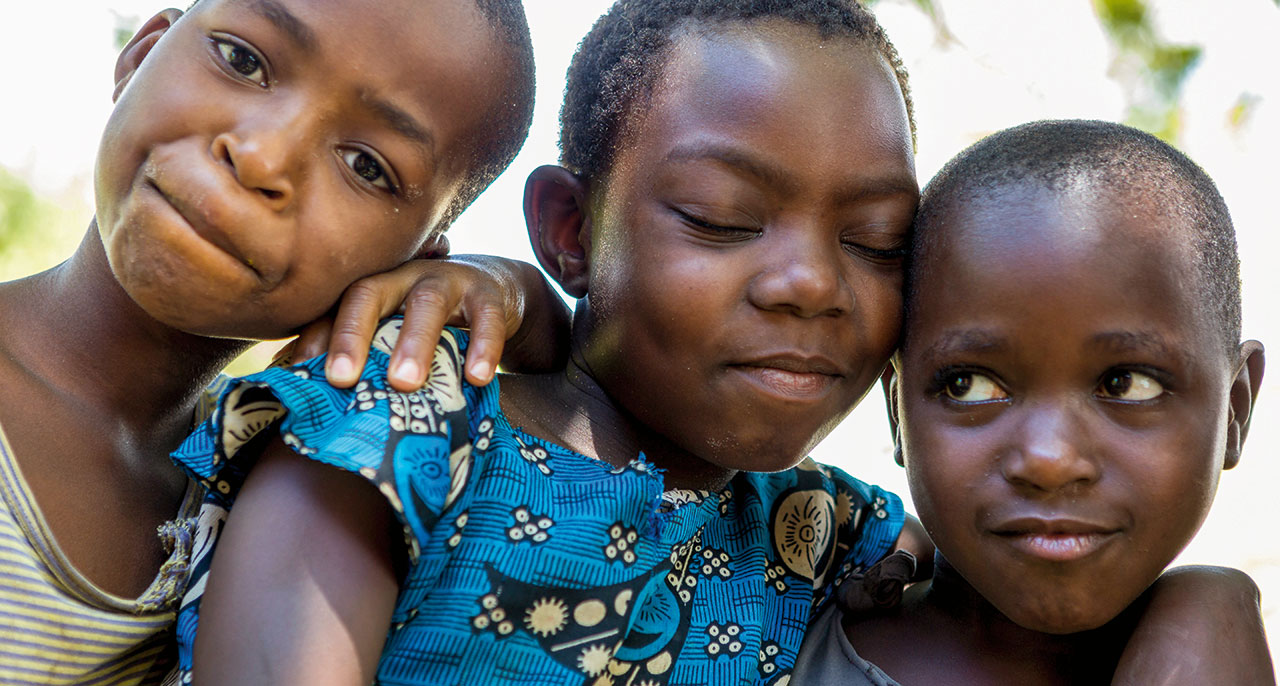
There is a widely known story, perhaps apocryphal, of a European anthropologist who unintentionally inspired a vivid demonstration of the living philosophy of ubuntu.
The anthropologist was studying a Zulu tribe in Southern Africa in the 1960s, and as he was finishing his colonial interference, he invited the children of the village to play a game. The children were to line up and, upon his signal, run the one hundred yards to where he stood. Whoever reached the anthropologist first would receive a big bag of sweets.
The children were of various ages and sizes. Some carried a sibling or held hands with a younger one; many had challenging abilities due to injury or birth. But they all lined up, and the signal was given. At first, a few of the children jumped and ran ahead. But after a few yards, they stopped, looked back, and rejoined the line. Then the children all locked arms and walked and ran until they reached the destination together.
The colonizer was baffled as the children laughed with glee, sharing the contents of the bag. Scratching his head in amazement, he stopped to ask one of the little girls, “Why did you all come together? One person could have had it all.”
Amazed at his thinking, she responded, “We believe this is how we should be. I am because we are.”
To express this using Buddhist terms, we might say that everyone has buddhanature, and we gain support from our sangha, our community. Ubuntu is the idea that no one can be healthy when the community is sick. Ubuntu says, I am human only because you are human. If I undermine your humanity, I dehumanize myself.
See More, Hear More, Love More
Nobantu Mpotulo reflects on how the spirit of ubuntu shaped her family.
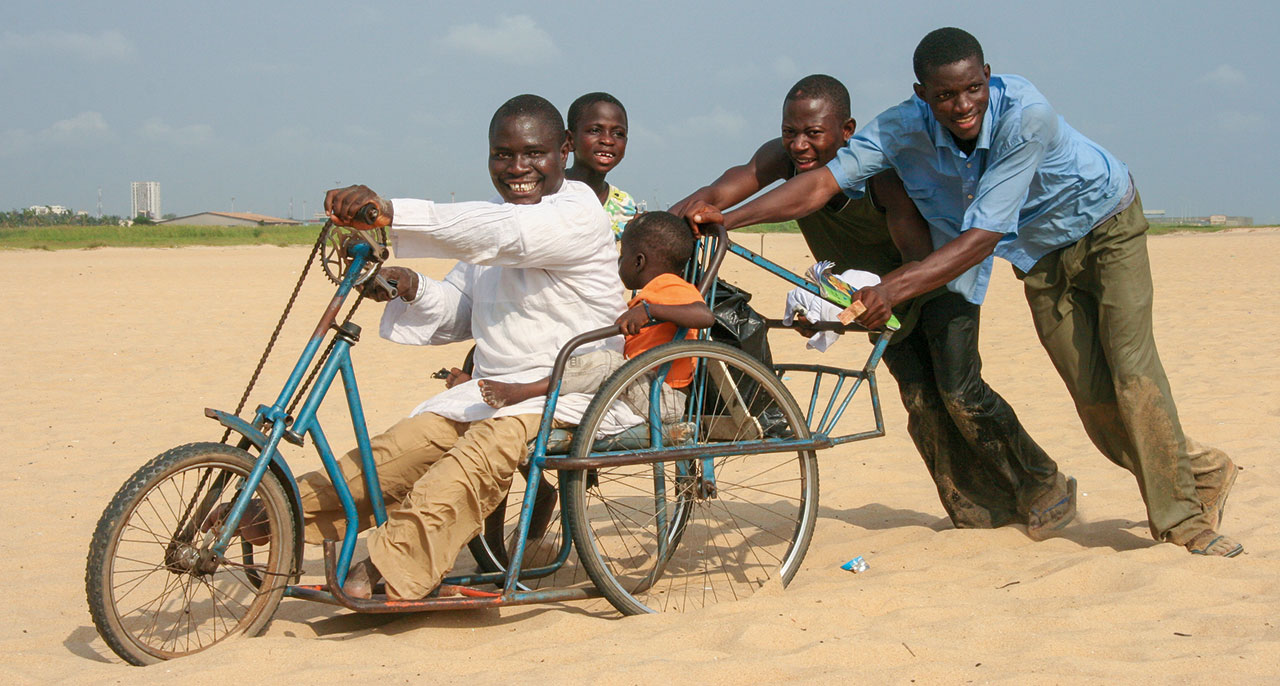
Nelson Mandela said that ubuntu is “the profound sense that we are human only through the humanity of others; that if we are to accomplish anything in this world, it will in equal measure be due to the work and achievement of others.”
I can relate Mandela’s statement to my upbringing. When my mother was pregnant with me, she went through immense suffering because my father left her. She was a teacher, and at that time teachers who gave birth had to take an unpaid leave of absence for a year. My mother could not afford to take this leave, as she wouldn’t have been able to provide for her three sons.
In practicing with ubuntu, and anatta, we regard all beings and Mother Nature as interconnected.
So my mother and my aunt concealed the fact that she’d just given birth, and when I was only a month old, my aunt took me in, even though she had six other children, including an eighteen-month-old daughter. My aunt brought me up as her own, and I called her “Mama.” Guests were not able to distinguish who were her biological children. My aunt’s house was always full of extended family. When we had supper, there would be twenty plates on the table, plus two extra plates in case someone hungry came by.
This is a taste of the ubuntu spirit, the ability to forget yourself as an individual and regard yourself as interconnected to others. If we compare ubuntu to Buddhist teachings, it’s closely linked to anatta (no-self). I have to consider the wellness of the whole before I consider my own interests and needs. This is the culture that has been passed on to me by my ancestors.
Bishop Desmond Tutu says, “A person with ubuntu is open and available to others, affirming of others, does not feel threatened that others are able and good, for he or she has a proper self-assurance that comes from knowing that he or she belongs in a greater whole and is diminished when others are humiliated or diminished.”
In South Africa, where I’m from, when we greet, we say, “sawubona.” This means I see you; I see myself in you; I see your hopes, your dreams, and your struggles; I see your ancestors as well. Because interconnectedness does not end with the two people who are greeting each other; it extends to include the ancestors.
In practicing with ubuntu, and anatta, we regard all beings and Mother Nature as interconnected; there is no sense of being separate. This supports us in embodying nonduality. I see myself in all beings, and therefore, if I harm other beings or Mother Nature, it translates into self-harming. This informs our practice of nonharming.
We have a lot to learn from nature about ubuntu and anatta. For example, fungi have a partnership with plants and trees. Through their tiny vegetal threads called mycelium, fungi serve as a communication network among plants that allows them to warn each other about insect infestations and share nutrients. According to some researchers, trees and the mushrooms growing around them are so interconnected that in many ways they aren’t separate entities.
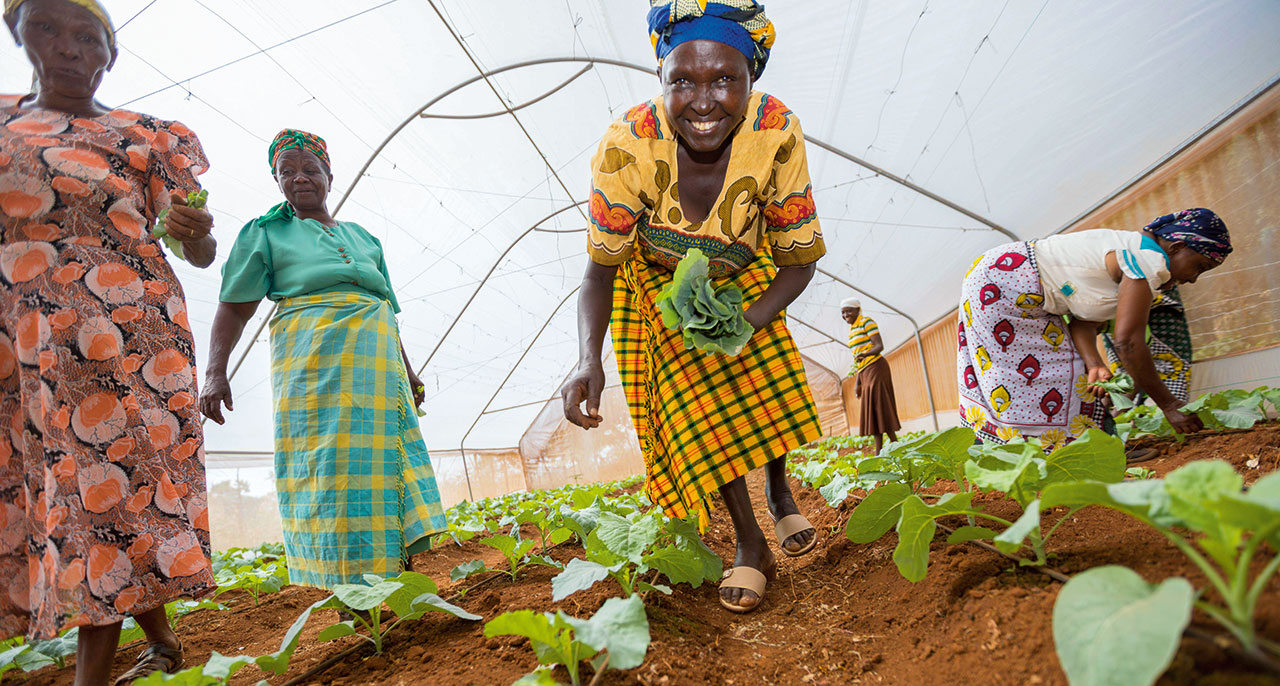
Then there is the mutualistic coexistence of bees and flowers, which Khalil Gibran described in his poem “On Pleasure”:
It is the pleasure of the bee to gather honey of the flower,
But it is also the pleasure of the flower to yield its honey to the bee.
For the bee a flower is a fountain of life,
And to the flower a bee is a messenger of love,
And to both, bee and flower, the giving and the receiving of pleasure is a need and an ecstasy.
Ubuntu is also in harmony with what in the Buddhist tradition are called metta (loving-kindness), karuna (compassion), and mudita (empathic joy). Both ubuntu and these Buddhist virtues put us in touch with our deepest humaneness, help us meet suffering with courage and resilience, and support us in loving and accepting people who are challenging to us.
The Bemba Tribe of Zambia takes ubuntu, metta, karuna, and mudita to another level. If in a community there’s a member who is troublesome, the whole community—the young and the old—come together and form a circle, placing the troublemaker in the center. They find the goodness in the person, highlighting their good deeds and showering them with appreciation. Then there’s a celebratory feast held in the person’s honor.
Applying the principles of ubuntu, anatta, metta, and karuna helps us integrate the head, heart, body, soul, and spirit. The mantra I use to reflect on this is: “See more; hear more; love more; illuminate more; be more and do less.”
